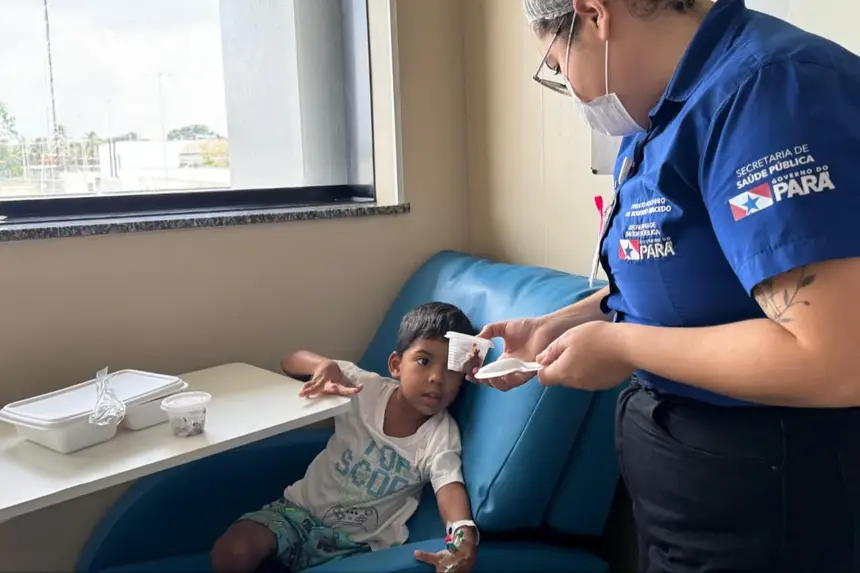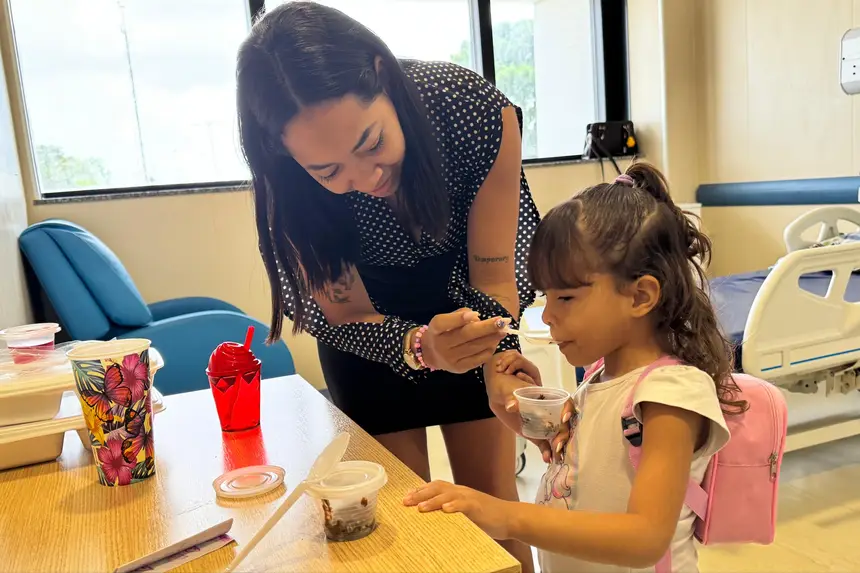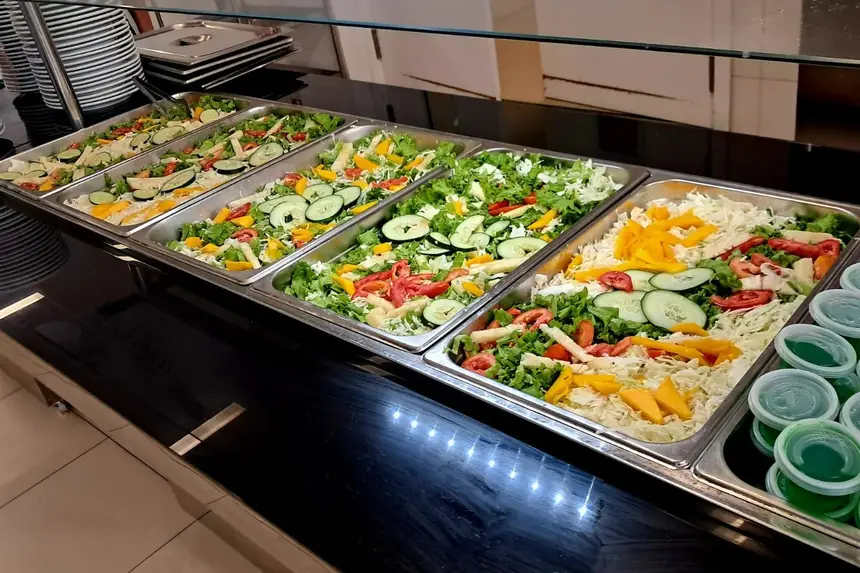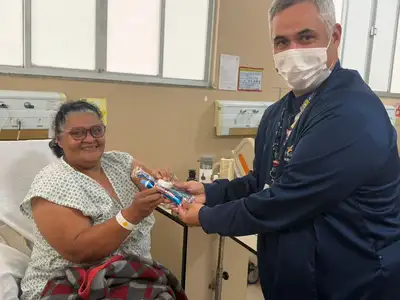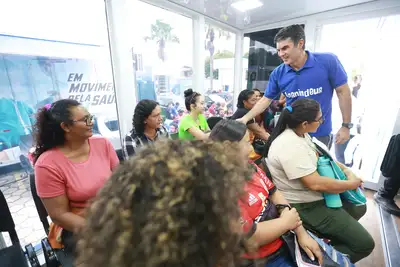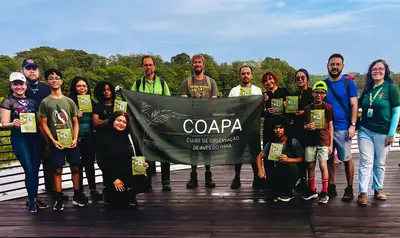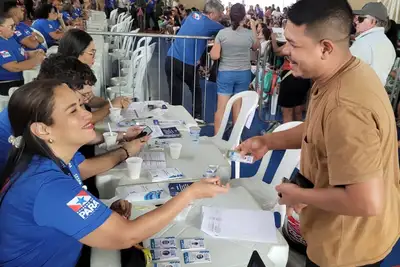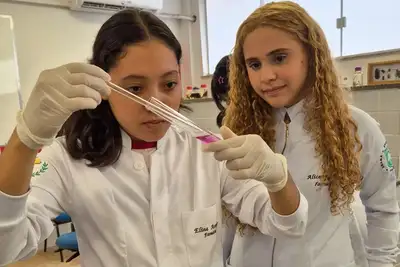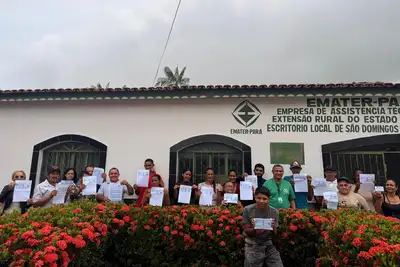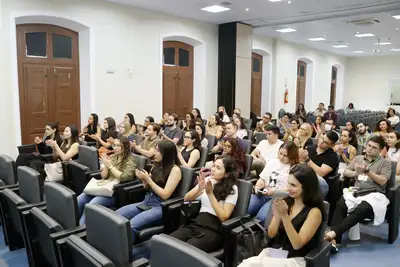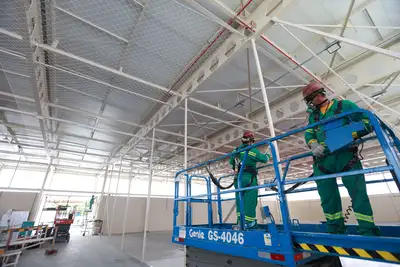State Emergency Room's sustainability project promotes food reuse in the health unit
Hospital promotes conscious food reuse on Fridays by offering healthy, nutritious, and functional preparations
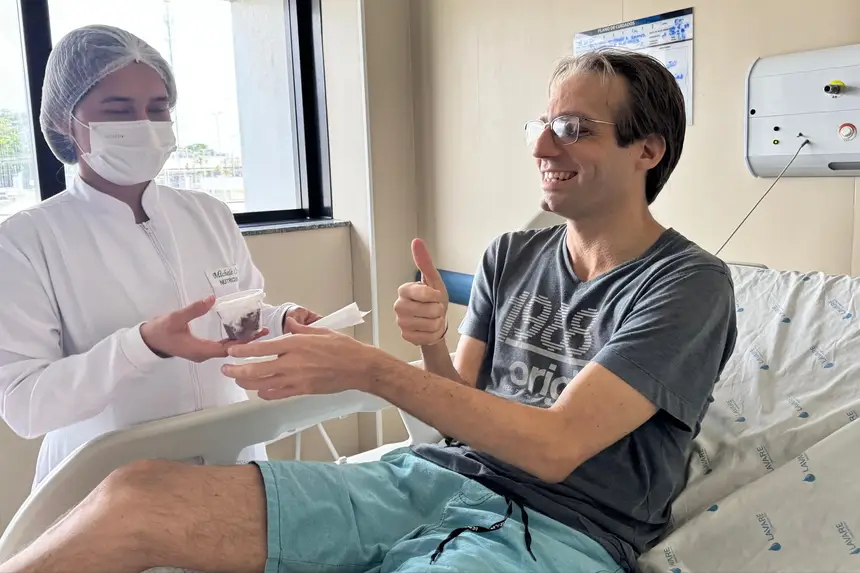
On the early afternoon of this Friday (03), patients and companions from the inpatient units and ICUs of the Dr. Roberto Macedo Emergency Room (PSRM) in Belém received a special dessert, prepared with the reuse of ripe bananas, used in the preparation of the mousse served with 80% cocoa chocolate.
The initiative is part of the Sustainability Commission's project, "Green Friday: Creative and Sustainable Kitchen," which, in partnership with the Nutrition and Dietetics Service (SND) and the Humanization Commission (CH), promotes conscious food reuse on Fridays by offering healthy, nutritious, and functional preparations made from parts usually discarded, such as peels, seeds, and usable leftovers from fruits and vegetables.
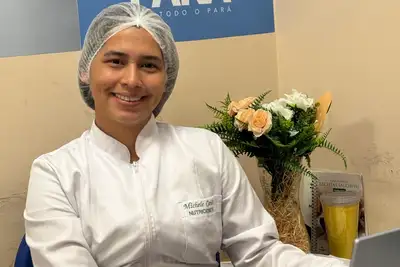
According to the technical manager of the Nutrition and Dietetics Service (SND) of PSRM, Michele Carneiro, the benefits of these foods for patients and staff are numerous, as the peels of fruits and vegetables contain various vitamins and minerals.
‘It is very important, especially for our users, who often arrive at the hospital weakened, depending on their pathology, this type of food, as the preparations, which are rich in vitamins, vitamin A, vitamin C, vitamin E, iron, calcium, and minerals, help recover their nutritional status,” highlighted the nutritionist.
The patient from the Adult Inpatient Unit, Francisco Carlos da Paixão, 60 years old, a resident of the Paar neighborhood in Ananindeua, received the banana mousse with chocolate dessert and expressed satisfaction with the novelty. “I thought it was very good to eat something different in the hospital. I didn’t imagine I would receive a dessert with chocolate. I hope I’m not hospitalized next Friday, but if I am, bring me these delicious and healthy things again,” said the patient.
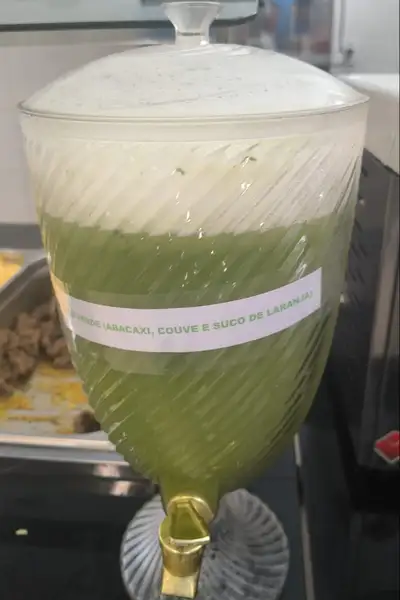
In addition to the mousse served today, among the preparations offered since the beginning of the project in June 2025, are banana farofa and fruit peel, juices from kale stems and pineapple peels, juice from melon seeds and carrot and orange peels.
It is estimated that about one-third of all food produced in the world is discarded. Information from the United Nations (UN) shows that food waste represents one of the greatest global challenges in environmental, social, and economic terms.
According to the president of the Sustainability Commission, environmental engineer Rayane Pereira, in the hospital environment, this issue takes on even more delicate contours, as it impacts both the sustainability of the institution and the quality of care practices. She emphasizes that the healthy and sustainable reuse of food is essential for building a culture of sustainability in the hospital.
“When we reduce food waste, we are not only taking care of the environment but also strengthening the health and well-being of our community. Every food item we avoid discarding means less waste, less gas emissions, and a more responsible use of water and energy. It is a simple attitude, but it shows how sustainability is also part of caring for people. The preparations, which are also intended for the hospital staff, reinforce institutional care through a symbolic offer of welcome, health, and environmental education,” points out Rayane Pereira.
“The project aims to promote the integral appreciation of food and combat waste through reuse, uniting the principles of healthy eating, humanized care, and environmental sustainability, acting transversally in these three fronts, valuing food in its entirety, respecting its nutritional and functional value, aligning with the guidelines of the National Food and Nutrition Policy (PNAN), which proposes universal access to healthy, adequate, and sustainable food as a right for all,” concludes the general director of PSRM, Carlos Vinicius Ribeiro Quadros.
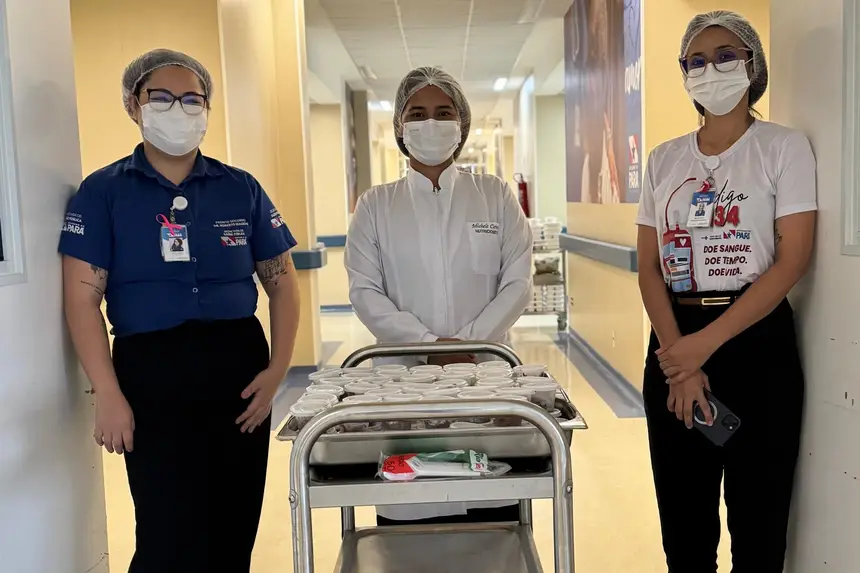
Service: The Dr. Roberto Macedo Emergency Room is located on Avenida Augusto Montenegro in Belém. The unit is managed by the Acqua Institute, in partnership with the State Department of Public Health (Sespa), and operates on a 24-hour shift for urgent and emergency clinical care. The State Emergency Room has surgical services in the specialties of general surgery, pediatric surgery, vascular surgery, thoracic surgery, oral and maxillofacial surgery, and neurosurgery.



